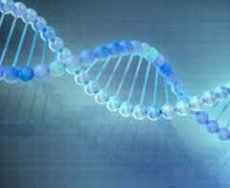Women live longer than men due to mutations in DNA
Last reviewed: 16.10.2021

All iLive content is medically reviewed or fact checked to ensure as much factual accuracy as possible.
We have strict sourcing guidelines and only link to reputable media sites, academic research institutions and, whenever possible, medically peer reviewed studies. Note that the numbers in parentheses ([1], [2], etc.) are clickable links to these studies.
If you feel that any of our content is inaccurate, out-of-date, or otherwise questionable, please select it and press Ctrl + Enter.

Changes in mitochondrial DNA can lead to a difference in the life expectancy of women and men, scientists from Australia have established, Current Biology writes.
Mitochondria, present in virtually all cells of living organisms, are vital because they convert food into energy that feeds the body.
The study was led by Dr. Damian Dowling and Ph.D. Floria Camus of the School of Life Sciences at Monash University in Melbourne, Australia, in collaboration with Dr. David Clancy of the University of Lancaster. Scientists have tried to disclose the difference in life expectancy and the processes of biological aging of men and women using the example of the model of flies of Drosophila, which have mitochondria in various structures.
"Unexpectedly, the same mutations that affect longevity and aging in males do not have a similar effect for women, they affect only men," Dr. Dowling's words quoted in a Monash University press release.

He recalls that the trend towards a higher life expectancy among female individuals is common to various species of living organisms. "Our results suggest that mitochondrial mutations, which we discovered, mainly contribute to faster aging of male individuals," Dowling said.
According to scientists, these DNA changes are a kind of a whim of nature in the transfer of genes from parents to offspring.
"Since children receive copies of most of their genes from both parents, they inherit mitochondrial DNA from mothers only, which means that evolutionary quality control, called natural selection, captures only the quality of mitochondrial genes in mothers," the scientist says.
"But if the mitochondrial mutation harms the fathers but does not affect mothers, this gene change" slips "unnoticed through the" eye "of natural selection." Thousands of generations have accumulated these mutations affecting only men but leaving women unscathed, "says the doctor.
His conclusions are also based on an earlier work on the role of the maternal transmission of mitochondrial DNA in the causes of male infertility.
"Together, our research shows that mitochondria is a hot spot for mutations affecting the male population, and now it is necessary to study genetic mechanisms that could nullify the effect of these harmful mutations and preserve the health of men," concludes the scientist.
According to the Ministry of Health of the Russian Federation, in 2011 life expectancy increased for the entire population of Russia by 3.7 years and amounted to 70.3 years. The average life expectancy of men reached the level of 64.3 years, women - 76.1 years. In 2006, for men, it was 60.4 years, for women - 73.2 years.
According to the UN, life expectancy around the world is 67.2 years (65 for men and 69.5 for women).
